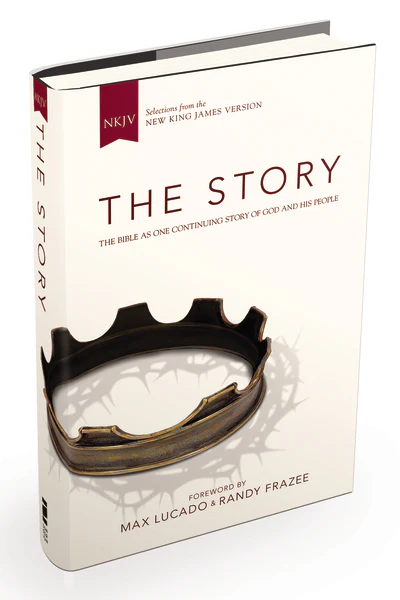Esther 3-4
New King James Version
Haman’s Conspiracy Against the Jews
3 After these things King Ahasuerus promoted Haman, the son of Hammedatha the (A)Agagite, and (B)advanced him and set his seat above all the princes who were with him. 2 And all the king’s servants who were (C)within the king’s gate bowed and paid homage to Haman, for so the king had commanded concerning him. But Mordecai (D)would not bow or pay homage. 3 Then the king’s servants who were within the king’s gate said to Mordecai, “Why do you transgress the (E)king’s command?” 4 Now it happened, when they spoke to him daily and he would not listen to them, that they told it to Haman, to see whether Mordecai’s words would stand; for Mordecai had told them that he was a Jew. 5 When Haman saw that Mordecai (F)did not bow or pay him homage, Haman was (G)filled with wrath. 6 But he disdained to lay hands on Mordecai alone, for they had told him of the people of Mordecai. Instead, Haman (H)sought to destroy all the Jews who were throughout the whole kingdom of Ahasuerus—the people of Mordecai.
7 In the first month, which is the month of Nisan, in the twelfth year of King Ahasuerus, (I)they cast Pur (that is, the lot), before Haman [a]to determine the day and the [b]month, [c]until it fell on the twelfth month, which is the month of Adar.
8 Then Haman said to King Ahasuerus, “There is a certain people scattered and dispersed among the people in all the provinces of your kingdom; (J)their laws are different from all other people’s, and they do not keep the king’s laws. Therefore it is not fitting for the king to let them remain. 9 If it pleases the king, let a decree be written that they be destroyed, and I will pay ten thousand talents of silver into the hands of those who do the work, to bring it into the king’s treasuries.”
10 So the king (K)took (L)his signet ring from his hand and gave it to Haman, the son of Hammedatha the Agagite, the (M)enemy of the Jews. 11 And the king said to Haman, “The money and the people are given to you, to do with them as seems good to you.”
12 (N)Then the king’s scribes were called on the thirteenth day of the first month, and a decree was written according to all that Haman commanded—to the king’s satraps, to the governors who were over each province, to the officials of all people, to every province (O)according to its script, and to every people in their language. (P)In the name of King Ahasuerus it was written, and sealed with the king’s signet ring. 13 And the letters were (Q)sent by couriers into all the king’s provinces, to destroy, to kill, and to annihilate all the Jews, both young and old, little children and women, (R)in one day, on the thirteenth day of the twelfth month, which is the month of Adar, and (S)to plunder their [d]possessions. 14 (T)A copy of the document was to be issued as law in every province, being published for all people, that they should be ready for that day. 15 The couriers went out, hastened by the king’s command; and the decree was proclaimed in [e]Shushan the [f]citadel. So the king and Haman sat down to drink, but (U)the city of Shushan was [g]perplexed.
Esther Agrees to Help the Jews
4 When Mordecai learned all that had happened, [h]he (V)tore his clothes and put on sackcloth (W)and ashes, and went out into the midst of the city. He (X)cried out with a loud and bitter cry. 2 He went as far as the front of the king’s gate, for no one might enter the king’s gate clothed with sackcloth. 3 And in every province where the king’s command and decree arrived, there was great mourning among the Jews, with fasting, weeping, and wailing; and many lay in sackcloth and ashes.
4 So Esther’s maids and eunuchs came and told her, and the queen was deeply distressed. Then she sent garments to clothe Mordecai and take his sackcloth away from him, but he would not accept them. 5 Then Esther called Hathach, one of the king’s eunuchs whom he had appointed to attend her, and she gave him a command concerning Mordecai, to learn what and why this was. 6 So Hathach went out to Mordecai in the city square that was in front of the king’s gate. 7 And Mordecai told him all that had happened to him, and (Y)the sum of money that Haman had promised to pay into the king’s treasuries to destroy the Jews. 8 He also gave him (Z)a copy of the written decree for their destruction, which was given at [i]Shushan, that he might show it to Esther and explain it to her, and that he might command her to go in to the king to make supplication to him and plead before him for her people. 9 So Hathach returned and told Esther the words of Mordecai.
10 Then Esther spoke to Hathach, and gave him a command for Mordecai: 11 “All the king’s servants and the people of the king’s provinces know that any man or woman who goes into (AA)the inner court to the king, who has not been called, (AB)he has but one law: put all to death, except the one (AC)to whom the king holds out the golden scepter, that he may live. Yet I myself have not been (AD)called to go in to the king these thirty days.” 12 So they told Mordecai Esther’s words.
13 And Mordecai told them to answer Esther: “Do not think in your heart that you will escape in the king’s palace any more than all the other Jews. 14 For if you remain completely silent at this time, relief and deliverance will arise for the Jews from another place, but you and your father’s house will perish. Yet who knows whether you have come to the kingdom for such a time as this?”
15 Then Esther told them to reply to Mordecai: 16 “Go, gather all the Jews who are present in [j]Shushan, and fast for me; neither eat nor drink for (AE)three days, night or day. My maids and I will fast likewise. And so I will go to the king, which is against the law; (AF)and if I perish, I perish!”
17 So Mordecai went his way and did according to all that Esther commanded [k]him.
Footnotes
- Esther 3:7 Lit. from day to day and month to month
- Esther 3:7 LXX adds to destroy the people of Mordecai in one day; Vg. adds the nation of the Jews should be destroyed
- Esther 3:7 So with MT, Vg.; LXX and the lot fell on the fourteenth of the month
- Esther 3:13 LXX adds the text of the letter here
- Esther 3:15 Or Susa
- Esther 3:15 palace
- Esther 3:15 in confusion
- Esther 4:1 Lit. Mordecai
- Esther 4:8 Or Susa
- Esther 4:16 Or Susa
- Esther 4:17 LXX adds a prayer of Mordecai here
Psalm 89:46-52
New King James Version
46 How long, Lord?
Will You hide Yourself forever?
Will Your wrath burn like fire?
47 Remember how short my time (A)is;
For what (B)futility have You created all the children of men?
48 What man can live and not [a]see (C)death?
Can he deliver his life from the power of [b]the grave? Selah
49 Lord, where are Your former lovingkindnesses,
Which You (D)swore to David (E)in Your truth?
50 Remember, Lord, the reproach of Your servants—
(F)How I bear in my bosom the reproach of all the many peoples,
51 (G)With which Your enemies have reproached, O Lord,
With which they have reproached the footsteps of Your [c]anointed.
52 (H)Blessed be the Lord forevermore!
Amen and Amen.
Footnotes
- Psalm 89:48 experience death
- Psalm 89:48 Or Sheol
- Psalm 89:51 Commissioned one, Heb. messiah
Proverbs 22:7-8
New King James Version
7 The (A)rich rules over the poor,
And the borrower is servant to the lender.
Footnotes
- Proverbs 22:8 trouble
Romans 3
New King James Version
God’s Judgment Defended
3 What advantage then has the Jew, or what is the profit of circumcision? 2 Much in every way! Chiefly because (A)to them were committed the [a]oracles of God. 3 For what if (B)some did not believe? (C)Will their unbelief make the faithfulness of God without effect? 4 (D)Certainly not! Indeed, let (E)God be [b]true but (F)every man a liar. As it is written:
(G)“That You may be justified in Your words,
And may overcome when You are judged.”
5 But if our unrighteousness demonstrates the righteousness of God, what shall we say? Is God unjust who inflicts wrath? (H)(I speak as a man.) 6 Certainly not! For then (I)how will God judge the world?
7 For if the truth of God has increased through my lie to His glory, why am I also still judged as a sinner? 8 And why not say, (J)“Let us do evil that good may come”?—as we are slanderously reported and as some affirm that we say. Their [c]condemnation is just.
All Have Sinned(K)
9 What then? Are we better than they? Not at all. For we have previously charged both Jews and Greeks that (L)they are all under sin.
10 As it is written:
(M)“There is none righteous, no, not one;
11 There is none who understands;
There is none who seeks after God.
12 They have all turned aside;
They have together become unprofitable;
There is none who does good, no, not one.”
13 “Their(N) throat is an open [d]tomb;
With their tongues they have practiced deceit”;
(O)“The poison of asps is under their lips”;
14 “Whose(P) mouth is full of cursing and bitterness.”
15 “Their(Q) feet are swift to shed blood;
16 Destruction and misery are in their ways;
17 And the way of peace they have not known.”
18 “There(R) is no fear of God before their eyes.”
19 Now we know that whatever (S)the law says, it says to those who are under the law, that (T)every mouth may be stopped, and all the world may become [e]guilty before God. 20 Therefore (U)by the deeds of the law no flesh will be justified in His sight, for by the law is the knowledge of sin.
God’s Righteousness Through Faith
21 But now (V)the righteousness of God apart from the law is revealed, (W)being witnessed by the Law (X)and the Prophets, 22 even the righteousness of God, through faith in Jesus Christ, to all [f]and on all who believe. For (Y)there is no difference; 23 for (Z)all have sinned and fall short of the glory of God, 24 being justified [g]freely (AA)by His grace (AB)through the redemption that is in Christ Jesus, 25 whom God set forth (AC)as a [h]propitiation (AD)by His blood, through faith, to demonstrate His righteousness, because in His forbearance God had passed over (AE)the sins that were previously committed, 26 to demonstrate at the present time His righteousness, that He might be just and the justifier of the one who has faith in Jesus.
Boasting Excluded
27 (AF)Where is boasting then? It is excluded. By what law? Of works? No, but by the law of faith. 28 Therefore we conclude (AG)that a man is [i]justified by faith apart from the deeds of the law. 29 Or is He the God of the Jews only? Is He not also the God of the Gentiles? Yes, of the Gentiles also, 30 since (AH)there is one God who will justify the circumcised by faith and the uncircumcised through faith. 31 Do we then make void the law through faith? Certainly not! On the contrary, we establish the law.
Footnotes
- Romans 3:2 sayings, Scriptures
- Romans 3:4 Found true
- Romans 3:8 Lit. judgment
- Romans 3:13 grave
- Romans 3:19 accountable
- Romans 3:22 NU omits and on all
- Romans 3:24 without any cost
- Romans 3:25 mercy seat
- Romans 3:28 declared righteous
Scripture taken from the New King James Version®. Copyright © 1982 by Thomas Nelson. Used by permission. All rights reserved.
Bible Gateway Recommends






